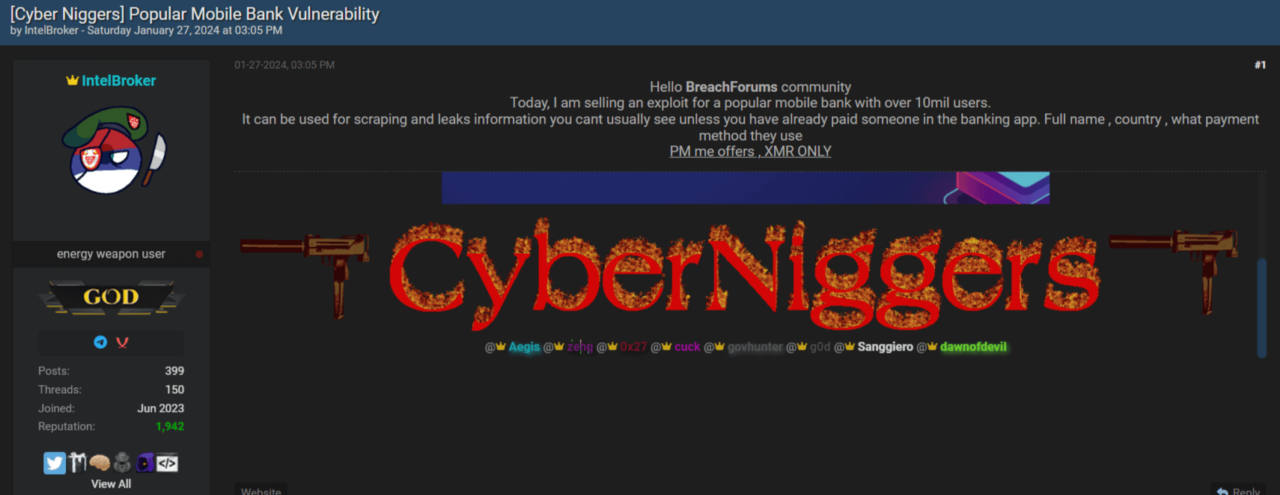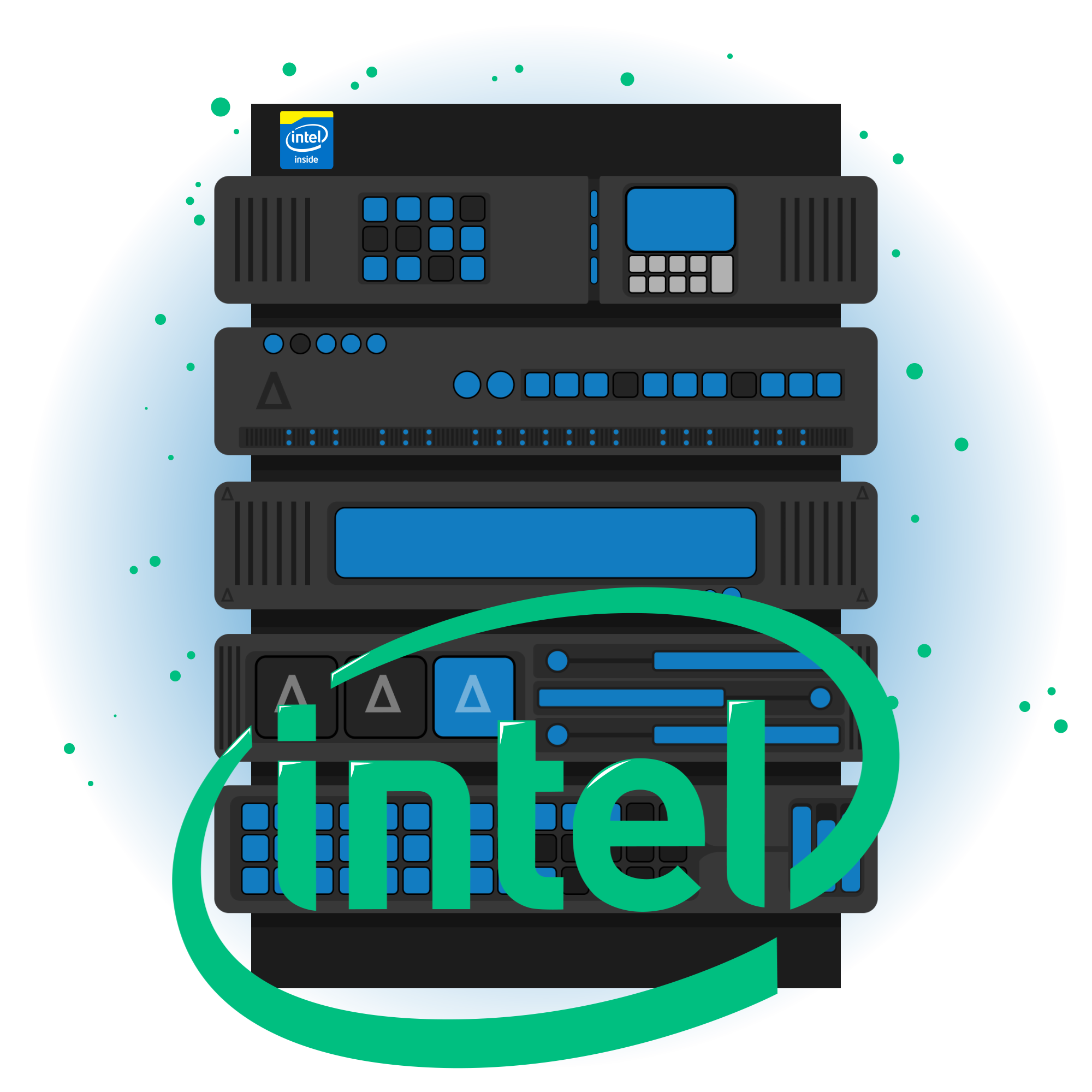Hacker group IntelBroker claimed responsibility for an alleged cyberattack on a popular mobile banking app — whose name has not been disclosed — with more than 10 million users. The group, known for its ability to exploit vulnerabilities, posted details of the exploit on a hacker forum on Saturday, January 27.
The post, titled [Cyber *******] Popular Mobile Bank Vulnerability, suggests that confidential information was extracted and leaked from the banking application. The data for sale includes users’ full names, countries and payment methods. The hackers demand payment exclusively in XMR (Monero) and have provided visuals to emphasize the severity of the exploit.
Although the victim of the attack is not named in the post, speculation stemming from the initial post on X (formerly Twitter) Daily DarkWeb suggest that Nu Bank is the potential target.
In November last year, reports emerged of a cyber attack on General Electric, the author of which was IntelBroker, affiliated with the Cyber ******* hacker group. The group claimed it had access to confidential military projects and attempted to sell network access on a hacker forum for $500. General Electric, in response, launched an investigation into the alleged data breach.

The breach allegedly involves access to confidential information related to Darpa, an agency responsible for advanced defense research projects linked to the US Department of Defense. IntelBroker not only claimed the network was hacked, but also put leaked data samples for sale on the hacker forum. Data includes SQL database files, military documents, aviation system descriptions and technical guides, and maintenance reports.
General Electric, known for its contributions to aerospace technology, especially aircraft engines, collaborates with Darpa on several defense-related projects. A GE spokesperson confirmed knowledge of the allegations made by IntelBroker and assured that appropriate measures would be taken to safeguard the integrity of its systems.
Source: CisoAdvisor










